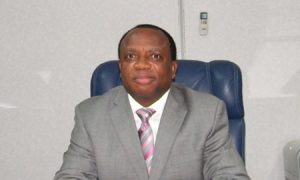 The Ghana Association of Savings and Loans Companies (GHASALC) has expressed concern about the restriction by the Bank of Ghana (BoG) for Savings and Loans Companies to transact check clearing services and foreign currency transfer.
The Ghana Association of Savings and Loans Companies (GHASALC) has expressed concern about the restriction by the Bank of Ghana (BoG) for Savings and Loans Companies to transact check clearing services and foreign currency transfer.
Such restrictions, the association said, was impacting negatively on the operations of Savings and Loans Companies.
Currently with the membership capacity of 28 companies, GHASALC holds 5.7 per cent of total assets of the eleven per cent of total financial sector assets.
Speaking to the Times Business on the sidelines of the GHASALC Chief Executive Officers Business Roundtable Discussion in Accra, the President of GHASALC, Dr Emmanuel Owusu said although both the banking and Non-Bank Financial Institutions were regulated by the Banking Act, 2004 (Act 673), only the universal banks were allowed to engage in check clearing as well as foreign currency transfers outside the country.
It was on the theme “The role and challenges of Savings and Loans Companies and how they impact on the Financial Sector in Ghana.”
He said members of GHASALC could not transfer funds to their foreign partners and had to do such transactions with some partner foreign banks.
Dr Owusu further disclosed that most members of association were losing their customers to the traditional banks because they could not render check clearing services.
“GHASALC cannot fathom why it cannot perform services prescribed by the law regulating banking and non-banking financial institutions, which other industry players are providing,” he queried, and therefore called on the BoG to take a second look at the Banking Act to create level playing field for the both the universal banks and Savings and Loans Companies.
Dr Owusu was also worried about the exorbitant business operating license charged by the Metropolitan and Municipal and District Assemblies and appealed to the BoG to intervene.
He cited an example in which the Kumasi Metropolitan Assembly last year unilaterally raised the business operating permit for members of GHASALC from GHC1,500 to GHc8,000.
To address the challenges facing the Savings and Loans Companies, Dr Owusu said an apex body was to be established to oversee the operations of the players in the savings and loans industry.
He said the apex body, which would be in the form of bank, would be owned by members of GHASALC.
Consequently, he said, a committee had been constituted to ensure the establishment of the apex body.
The CEO of Beige Capital, the sponsors of the programme, speaking on the topic, “Challenges facing the Savings and Loans Companies,” said the capital base of some of the Savings and Loans Companies were more than GHc100 million and did not understand why they could not engage foreign currency transfer services.
He stressed the need for the BoG rules to be revised to serve the needs of the Savings and Loans Companies.
First Deputy Governor of the BoG, Mr Millison Narh in a speech read on his behalf, paid glowing tribute to the Savings and Loans Companies for the role they were playing to deepen financial inclusion the country.
He, entreated the Savings and Loans Companied to put strategies in place to reached the unbanked and extend their services to the communities without banking services.
To this end, Mr Narh called on the Saving and Loans Companies to adopt technological systems and employ the use of tools of branchless and mobile financial services to reach the unbanked.
The First Deputy Governor said GHASALC should critically consider the constraints hindering the growth of the Savings and Loans Industry such as capital base, ,management and governance, and the cost of services and loans extended to their clients.
Mr Narh said pledged that the concerns of GHASALC would be communicated to the Governor of the BoG and measures would be taken to address those concerns.
The Managing Director of Firstrust Savings and Loans, Mr Hubert Dake appealed to BoG to provide tax rebate and holidays to companies which operated in the rural areas, which the traditional banks were shunning.
He said it was expensive in operate in such areas due to poor infrastructure such as roads and Information Communication Technology.
Other industry players at the programme called on the BoG to provide cheap sources of finance to the Savings and Loans Companies, as they provide for the universal banks, so that the former could lend to their clients at a reduce interest rate.
African Eye News.com




